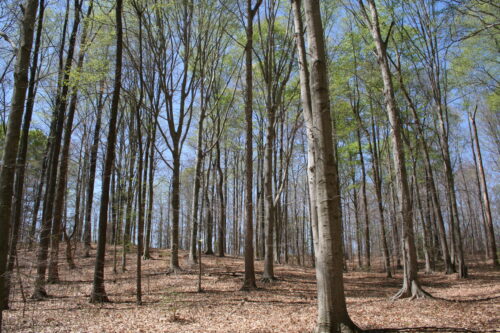 Forests provide many benefits to the Commonwealth and to the thousands of people and businesses that own the land. Timber sales provide revenue for landowners and drive businesses like logging, milling, trucking, and manufacturing. Trees can take a long time to grow and many landowners may sell timber infrequently or only once in their lifetime, so it’s important to learn and plan carefully before acting.
Forests provide many benefits to the Commonwealth and to the thousands of people and businesses that own the land. Timber sales provide revenue for landowners and drive businesses like logging, milling, trucking, and manufacturing. Trees can take a long time to grow and many landowners may sell timber infrequently or only once in their lifetime, so it’s important to learn and plan carefully before acting.
Pause and Learn
Selling timber is a business and financial transaction so it is important to apply sound business practices when selling timber. One of the most important steps a landowner can take is using a sales agreement or contract which spells out all of the terms of the transaction and the expectations of both the buyer and the seller. Timber sale terms like length of time; what timber is being sold; how much, what units of measure; amount, method and timing of payment; insurance and liability; access to the timber; care of roads, fences, and condition of land are all very important. It is also essential for the landowner to understand the tax implications of a timber sale.
Plan
A timber sale is an action that should be a part of a larger plan for the forest. Professional foresters are an important resource to landowners in developing plans that will help them meet their objectives. Private consulting foresters can provide an inventory of the forest stand so landowners know what they have before they sell, estimate its value, market and sell the timber, and administer and monitor the timber sale. Consulting foresters are experienced professionals who are involved in these processes daily and can work as an advocate for the landowner. Studies show that landowners that use the services of a professional forester receive higher timber sale revenue.The landowner, timber owner, and buyer all hold responsibility to ensure compliance with Virginia’s forest laws.
Act
It takes both a seller and a buyer for a timber sale transaction. Timber buyers can be loggers, brokers, or mills. There are a number of different timber sale business methods which vary depending upon the amount and type of product, as well as the needs of the seller and the buyer. Common types of sales are a lump sum payment, payment by unit of timber cut, or a percentage of the value based on the amount paid by the mill. There can be advantages and disadvantages to each of these types of sales. So, pause and learn more, plan well, and then act.
Get started selling your timber.
Additional Resources
| Image | Title | ID | Description | Date | Content Type | View | hf:tax:document-category | hf:tax:Media |
|---|---|---|---|---|---|---|---|---|
| Timber Sales | P00118 | Brochure offers guidance to landowner’s considering selling the timber from their property, including planning for success, selling methods, forest law compliance, public forestry services, private forestry services, and timber sale contract provisions. Printed copies available. | 05/01/2014 | Publication | View | forest-management | publication | |
| National Timber Tax Website | The National Timber Tax Website was developed to be used by timberland owners, as well as a reference for accountants, attorneys, consulting foresters and other professionals who work with timberland owners regarding the tax treatment of timber related activities. | Resource | View | financial-assistance-forest-management forest-management | resource |
- If you suspect timber trespass on your property, learn more about suspected timber trespass and timber theft.
- USDA Forest Service National Timber Tax Website
- Association of Consulting Foresters
- Virginia Loggers Association
- If you are the manager of state-owned lands looking to sell timber, learn more about the state-owned lands program.
Contact Us
DOF foresters can assist you with selling timber, contact your local DOF forester.
For more information or questions, e-mail us or use our contact form.
